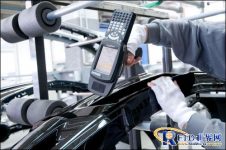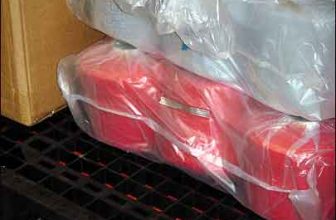
Rehau bumper factory uses RFID technology to improve production efficiency and transparency
[ad_1]
German manufacturer Rehau deploys RFID technology in its eight factories around the world to better track the car bumper manufacturing process. It can not only improve the efficiency of the entire process from injection molding to post-production assembly, but also quickly find out any problems in the manufacturing process. The system can track the entire production process of parts from injection molding, painting to assembly. In the long term, the company expects to expand the scope of use of the solution provided by the automatic identification software company noFilis AutoID to track the entire shipment process of bumper products. In addition, Rehau hopes that its material suppliers will start marking the materials before they are shipped to the Rehau assembly plant.
Rehau is a global manufacturer of polymer products, and its products are widely used in the automotive, industrial solutions, furniture and construction industries. About eight years ago, the company began looking for solutions based on passive ultra-high frequency (UHF) RFID tags to monitor the position and status of bumpers in the Feuchtwangen assembly plant. In the beginning, this solution was only used on a BMW car bumper assembly line. Rehau personally designed the solution and selected the hardware, and also integrated it with the enterprise ERP system.

As this pilot project worked well, Rehau decided to expand the use of RFID technology to all the company’s bumper assembly lines. At the same time, the company said that the RFID reader deployed in the pilot project is outdated, and integrating different RFID systems is also a difficult task. Therefore, Rehau needed an innovative solution that is easy to integrate multiple factory data and can be centrally managed. In this regard, Marcel Monzelt, an RFID expert in Rehau’s production and logistics department, said that in 2012, the company has signed a contract with noFilis, and noFilis will provide the company with RFID hardware, software, integration and follow-up support.
Before deploying RFID, Rehau had little knowledge of the location of the bumper. Therefore, when a new bumper arrives in a new process, the staff needs to confirm the bumper model first to produce according to customer requirements. With the growth of Rehau bumper output and product categories, this production control method is obviously out of date.
In use, the company first installed a mechanical system deploying a Sato RFID encoder printer, and printed and automatically attached a UHF RFID EPC Gen 2 passive tag on the surface of each bumper during the injection molding process. As a pilot project, Rehau installed many RFID readers in the manufacturing, molding and coating processes at the Feuchtwangen factory.
Before local network and physical deployment, Kathrein and noFilis also conducted some multi-point reading simulations and feasibility tests. In addition, Rehau also uses the noFilis middleware CrossTalk to integrate previous reading points and data from other factories.
After the system is installed, when the bumper is moved to a different process, the reader will read these ID numbers containing the model, serial number and customer information. At the same time, these data will be filtered by CrossTalk and uploaded to Rehau’s software. Patrick Hartman, NoFilis global sales director, said that CrossTalk provides many features. It can manage the equipment and alarm when the equipment is abnormal. The CrossTalk control center resides on each station of the Rehau server and can provide multiple levels of response. When there is a problem with the system reader or other hardware, the problem will first be resolved by local IT or other support personnel.

CrossTalk also provides a decentralized module function to filter the unnecessary data locally. After filtering the original reading data, the CrossTalk Agent module will transmit the data to Rehau’s management software.
Hartman said that CrossTalk simplifies the RFID system through background operation, data filtering, and real-time monitoring of the status of the reader.
Once the system runs smoothly in the first plant, Rehau will use it at Ingolstadt, Mosel, Gyor, Cullman, Alabama, Port Elizabeth, and East London plants.
Monzelt said that in these factories, labels will be used in all manufacturing processes. So far, Rehau has installed more than 300 readers in 8 factories.
Monzelt said: “Due to the use of RFID systems, daily work has become much easier. The production process has become more transparent, which has also solved our previous production bottlenecks.” For example, when a bump is found on the bumper. Rehau can find the source of the problem from the software history. In this way, companies can train employees who make mistakes.
In addition, the company plans to integrate Motorola’s Psion Workabout Pro and NordicID’s handheld RFID readers into the CrossTalk system to better manage these data. Currently, the handheld RFID reader is being used for production exception management.
Monzelt said that many of Rehau’s automotive customers use RFID technology to manage work in progress. Therefore, Rehau encourages them to use these bumper tags so that they don’t need to invest twice in their own business.
(Exclusive manuscript of rfid world network, please indicate the source author for reprinting!)
[ad_2]



